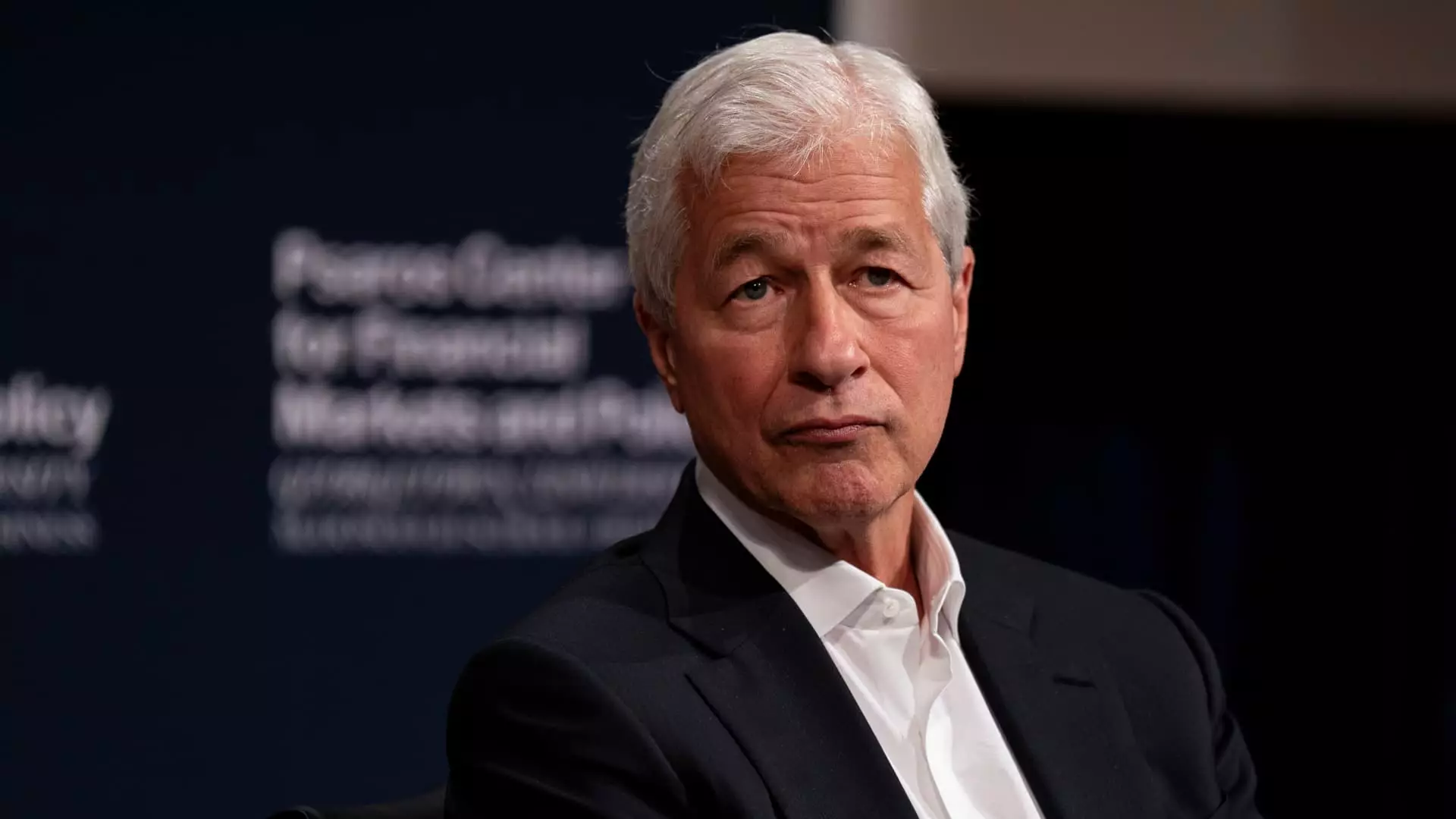The discourse surrounding President Donald Trump’s proposed tariffs on U.S. trading partners has stirred considerable conversation among economic leaders, particularly in the context of national interests and economic strategy. Central to this dialogue is Jamie Dimon, CEO of JPMorgan Chase, who recently expressed a nuanced view on how tariffs could be employed to protect American interests while navigating potential pitfalls such as inflation and international backlash.
Understanding Tariffs: Tools for Economic Strategy
Tariffs, essentially taxes imposed on imported goods, can serve multiple economic purposes. For Dimon, these duties are not merely punitive measures; rather, they represent a form of economic leverage. In his interview at the World Economic Forum in Davos, he characterized tariffs as “an economic tool,” underscoring their capability to foster negotiations and achieve favorable outcomes for the United States. He highlighted that, while tariffs may exert inflationary pressures, the potential benefits to national security merit consideration.
The dual-edged nature of tariffs is significant; while they can protect domestic industries and create a more favorable trading environment for U.S. businesses, they can also lead to increased prices for consumers. Dimon’s perspective suggests that the economic landscape is complex and that the consequences of tariff imposition must be carefully measured against the broader national objectives.
Under Trump’s administration, the trade policies have shifted significantly, with aggressive rhetoric surrounding tariffs directed at countries such as Mexico, Canada, China, and the European Union. Trump’s assertion that the U.S. is being treated unfairly due to trade deficits reflects a growing trend of protectionism being employed by various nations as they seek to prioritize their economic sovereignty. This strategy of rebalancing trade agreements is echoed by other financial leaders, including Goldman Sachs CEO David Solomon, who articulated a similar understanding of tariffs as instruments for re-negotiation rather than outright confrontation.
The implications of these tariffs extend beyond merely altering the pricing of goods; they may reshape long-standing trade relationships and economic dependencies. The potential for retaliatory measures from trading partners looms large, raising questions about the efficacy of this approach in promoting genuine collaborative economic growth. Solomon’s comments about preparing for shifts in policy reflect a recognition within the business community that adaptability and foresight will be paramount in navigating the complexities of global trade policy.
Inflation Concerns and Economic Growth
One of the most pressing concerns accompanying the discussion of tariffs is inflation. Despite warnings that aggressive tariff measures could spike inflation, Dimon counters that an emphasis on national security and economic resilience may justify temporary price increases. His assertion that “national security trumps a little bit more inflation” encapsulates a strategic viewpoint that prioritizes long-term stability and resilience over short-term economic discomfort.
The relationship between tariffs and inflation has historically been a contentious issue. In Dimon’s view, the link is not always straightforward; while tariffs can lead to higher consumer prices, the broader economic context—including growth rates and employment levels—should guide policymakers in determining the appropriateness of such measures. The fact that inflation remained below 2.5% during Trump’s first term, despite the implementation of broad tariffs, adds complexity to this narrative. It raises the question of whether the adverse effects of tariffs on inflation can be mitigated through strategic implementation and timing.
As discussions around tariff implementations unfold, leaders within the financial sector exhibit a blend of caution and optimism. Both Dimon and Solomon underscore the need for thoughtful execution—emphasizing that with the right strategies, the rebalancing of trade can yield positive outcomes for the U.S. economy. Their insights highlight a broader economic narrative that values negotiation and adaptability in the face of evolving global dynamics.
While the conversation around tariffs is fraught with uncertainty and potential conflict, perspectives from business leaders like Jamie Dimon suggest that with strategic foresight, these economic tools could ultimately be harnessed to benefit American interests. The path forward will require a careful balance of protectionism and collaboration in an increasingly interconnected global economy.

